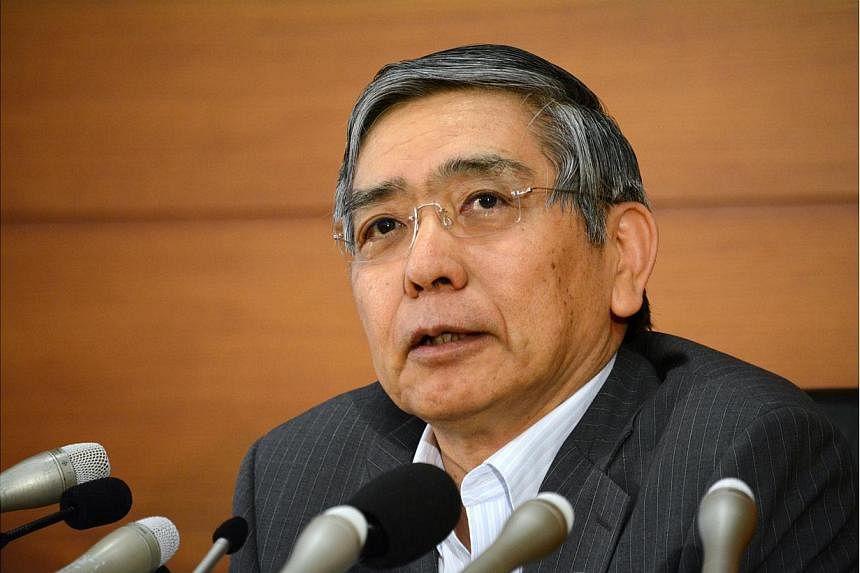TOKYO (Reuters) - Bank of Japan Governor Haruhiko Kuroda warned on Tuesday against prematurely discussing a strategy for withdrawing its massive stimulus programme, stressing that the priority now was to keep flooding markets with cash to meet the bank's inflation target.
He also called on the government to map out a credible growth strategy and take measures to boost Japan's long-term growth potential, as improvements in the economy and an ageing population have led to labour shortages.
"Talking at an early stage about specific plans for exiting (quantitative easing) risks confusing markets, as we've seen in examples overseas," Kuroda told parliament, alluding to the market volatility caused last May by the Federal Reserve's suggestion that it would start tapering its massive asset purchases.
"We'll need to debate plans on an exit when our 2 per cent price target is achieved in a stable manner. But it's too early to discuss specifics now," he said.
How to withdraw the massive stimulus, including the tapering of its government bond purchases, will depend on price and market developments at the time, Kuroda said.
Kuroda reiterated that improvements in the economy have boosted domestic demand and narrowed Japan's output gap to near zero. But he said domestic demand continues to play a key role in nudging consumer inflation, now having exceeded 1 per cent, toward the BOJ's 2 per cent target.
An ageing population has led to labour shortages, while prolonged deflation has led companies to hold back on capital expenditure, raising concerns that supply constraints may cap Japan's long-term economic growth.
Kuroda warned that an increase in domestic demand has highlighted the need to address such supply constraints.
"Japan's potential growth has fallen significantly," he said. "It's therefore very important to map out a growth strategy to boost Japan's potential growth. I'd like to reemphasise that point," he added.

